#female uruk
Text
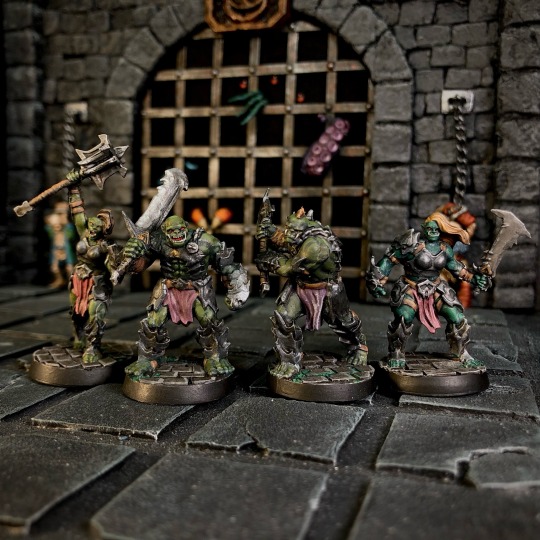
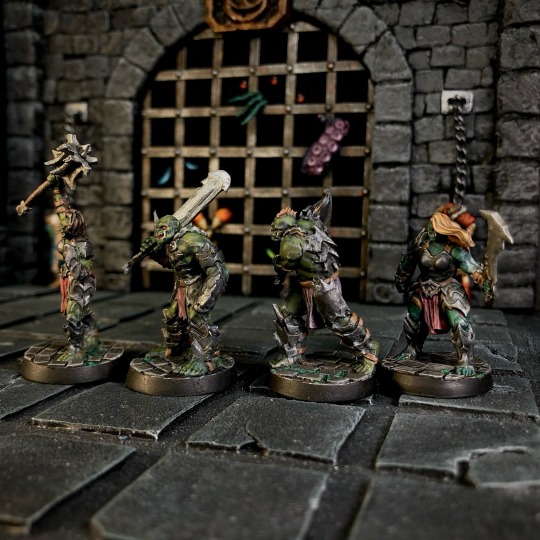

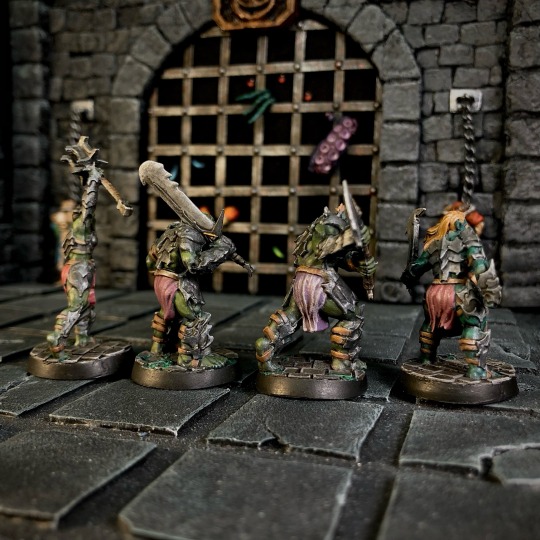




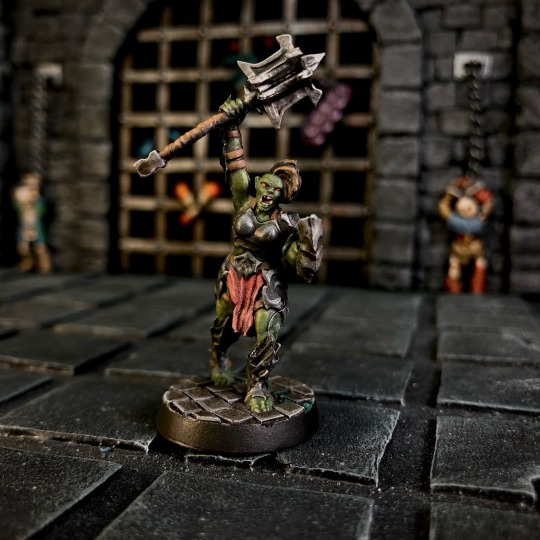
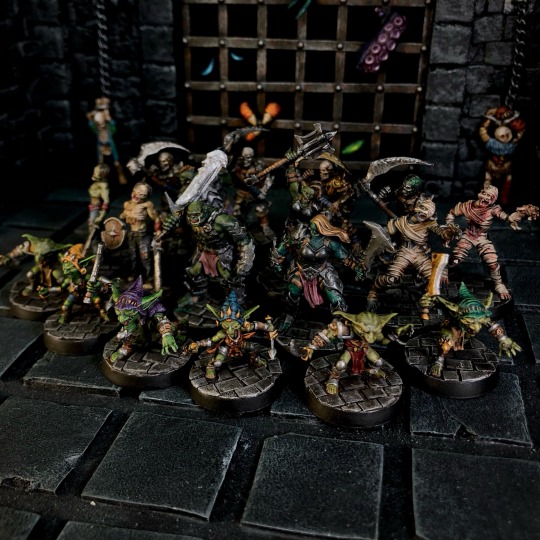
Orc (1/2)
Avalon Hill
Something something best thing about HeroQuest:
Orc’Reilly Auto Parts
#miniature painting#orc#Heroquest#painting miniatures#minis#miniatures#miniature#fantasy#board game#monster#fantasy monster#sword#tabletop gaming#tabletop#dnd#d&d#dungeon#dungeons and dragons#orcs#female orc#orcs and goblins#green skin#uruk hai
31 notes
·
View notes
Text
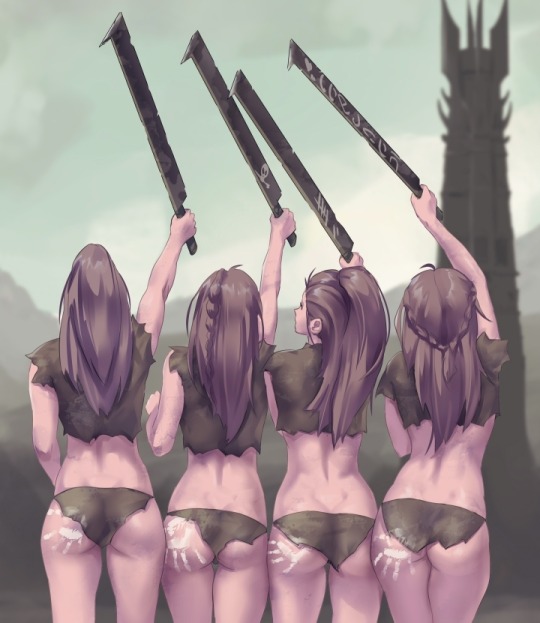
#iskanderednaksi#lord of the rings#lord of the rings fanart#Uruk-hai#white hand#orcs#lotr fanart#lotr orcs#girl with a weapon#orc girl#fanart#fantasy girl#pinup art#⚔️#female warrior#2d butt#bum#2d art#waaagh#swordswoman
53 notes
·
View notes
Text
Inanna / Ishtar masterpost
Inanna / Ishtar is the deity that I am devoted to, and there is a lot of misinformation out there about her, so this is a masterpost about her and her mythology, which does involve sex and rape, and revenge. Read with care.
Edit: I forgot certain points I wanted to add, so instead of editing and adding them in as an after thought, find them here :)
Lineage
Sources disagree on who her parents are. Some say Enki or Nanna, both male presenting, but most often she is depicted as the granddaughter of Enlil, and the niece of Enki. Her mother, as stated in Inanna Prefers The Farmer, is Ningal, as it is the only story that discusses her mother. Perhaps she is the daughter of Enki, Nanna, and Ningal. Regardless of who her parents are, she is the twin sister of Utu, and the sister of Ereshkigal. In the story of Gilgamesh and a few others, she is also portrayed as Gilgamesh's sister. She is married to Dumuzid.
Myths
Inanna and the Huluppu Tree: "A young woman who walked in fear of no man, and would not be owned, Plucked the tree from the river and spoke: “I shall bring this tree to Uruk. I shall plant this tree in my holy garden.”"
Enki, God of wisdom, planted a tree by the Euphrates at the beginning of time. Eventually, the tree was taken by the Euphrates. Inanna came, picked the tree, and decided she would nurture it so she could carve her throne and bed from it. Many years passed, and a serpent who couldn't be charmed made it's home in the tree. Then the Anzu-bird raised his family in the tree. And the dark maid Lilith made her home in the trunk. No matter how much Inanna wept, the creatures would not leave the tree. Inanna called to her brother, Utu, God of the sun, for help. He refused. She went to her brother, the great hero Gilgamesh, and he helped. He struck the serpent who couldn't be charmed and the birds flew away and Lilith fled to the wild uninhabited places. From the trunk, he carved her throne and her bed. From the roots, Inanna fashioned a pukku for her brother, and from the crown a mikku for Gilgamesh.
Inanna Prefers The Farmer: "No, brother!
The man of my heart works the hoe.
The farmer! He is the man of my heart!
He gathers the grain into great heaps.
He brings the grain regularly into my storehouses."
Inanna asks her brother, Utu, who she will marry. He tells her to marry Dumuzi, the shepherd. She responds that her heart is with the farmer Enkimdu. Utu tells her no, Dumuzi is the better choice, but she says no, Enkimdu is. Dumuzi and Enkimdu fight over this, but eventually Inanna is swayed and marries Dumuzi, in a rather erotic scene.
Inanna's Descent: "Then Erishkigal fastened on Inanna the eye of death.
She spoke against her the word of wrath.
She uttered against her the cry of guilt.
She struck her.
Inanna was turned into a corpse,
A piece of rotting meat,
And was hung from a hook on the wall."
Inanna goes to the underworld for her sister Ereshkigal's husband's funeral, having been the cause of his death. Inanna tells her priestess Ninshubur what to do should she not return. Dress in a single cloth like a begger, go to the temple of Enlil and beg for his help. If he does not help, go to Nanna. If he does not help, go to Enki. Inanna arrives at the gates, and as she passes through each of the seven gates, a garment is removed until she stands naked. The Anunna pass judgement, and Ereshkigal turns Inanna into a rotting corpse with the Eye of Death, and hangs her on a hook on the wall. On the third day, Ninshubur follows instruction. She dresses in a single cloth like a begger and goes to Enlil. Enlil denies. She goes to Nanna. Nanna denies. She goes to Enki. Enki creates the Kurgarra and the Galatur, neither male nor female, and gives them each the food of life and water of life. He tells them how to get on Ereshkigal's good side and to take the corpse from the wall and give it the food and water. They do, and Inanna rises, but the Annuna prohibit her from leaving. She must put someone else in her place. The Galla, demons from Ereshkigal, try to take Ninshubur, Shara, and Lulal, but Inanna spares them, as they mourned her. Then they find Dumuzi, dressed beautifully, with women around him. Inanna was betrayed, her own husband did not mourn her. The Galla take him away. Eventually, Inanna misses him, and sets a deal. For half of the year, Dumuzi will be on the wall in the underworld. For the other half, his sister.
Inanna and the God of Wisdom: "“In the name of my power! In the name of my holy shrine! Let the me you have taken with you remain in the holy shrine of your city. Let the high priest spend his days at the holy shrine in song. Let the citizens of your city prosper, Let the children of Uruk rejoice!”"
Inanna goes to Enki, and Enki treats her with butter cake and water and beer, lots of beer. Enki, while intoxicated, gives Inanna the Meh, the various humanities. She takes them and flees with Ninshubur. Enki, now sober, sends his servants to get the Meh back. Ninshubur protects the Meh for Inanna. They go back and forth six times, until Inanna gives the gifts to her people, and Enki resigns himself.
Inanna and Utu: "She makes perfect the great divine powers, she holds a shepherd's crook, and she is their magnificent pre-eminent one."
Inanna is given reign over fertility and sex, but she knows nothing about that subject. Utu and her go to the underworld and Inanna eats the fruit from the tree of knowledge, gaining that information.
Inanna and Su-Kale-Tuda: "He recognised a solitary god by her appearance. He saw someone who fully possesses the divine powers. He was looking at someone whose destiny was decided by the gods."
Inanna had had a long journey, so she rests on earth beneath the shade of a tree in a garden. The farmer Su-Kale-Tuda sees her sleeping and rapes her, then flees to his father. Inanna wakes up, seeing what had been do to her, and vows to find the man who did this. Su-Kale-Tuda confesses to his father, who tells him to hide. Inanna turns the water of the realm to blood, she sits on a storm cloud and drowns the world, then sends a dust storm, then stopped trade entirely within the world. Unable to find him she cries to her father, Enki, demanding his help. Enki turns her to a rainbow so that she stretched across the sky, and saw everything. Su-Kale-Tuda still tried to hide, but he could not hide from her any longer. She found him, and her first words are lost to time (some words translated to "How ......? ...... dog ......! ...... ass ......! ...... pig ......!") Su-Kale-Tuda tried to defend himself but Inanna told him "You will die, but the world will remember your name. Rapist."
Symbols:
Lions - she is often depicted with lions harnessed, to symbolize her power over the king of beasts
Roses - roses are symbols of beauty and sex, and their thorns represent the war side of her. At one point, the rose/rosette eclipsed the eight pointed star as her main symbol
Doves - another symbol of beauty and sex, in one of her temples was a mural of a dove emerging from a large palm tree, leading many to believe she was able to take the form of a dove.
Lapis Lazuli - the only precious stone I have seen be named as something she wears, specifically referenced in The Descent Of Inanna
Eight pointed star - the symbolic meaning is lost to time, but it shows up frequently in her depictions
Hook shaped twist of reeds - a symbol of fertility, and was her cuneiform ideogram
The planet Venus - many hymns credit her as being the personification of the planet
Carnelian - one of her epithets means "precious carnelian"
Thank you for reading, and I hope to make a similar masterpost detailing Mesopotamian mythology as a whole.
Edit: I did, you can find it here.
#witchcraft#witchblr#inanna devotee#goddess inanna#inanna ishtar#ishtar#inanna#devotee#deity witchcraft#deity devotion#deity work#deity worship#deity#mythology#mesopotamia
70 notes
·
View notes
Text
From The Unknown
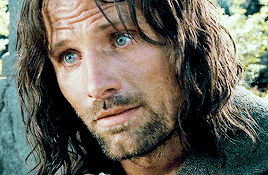
A/N: MY LOVES I AM BACK!! Finally finished all my exams and I desperately needed some Aragorn content! It's so good to be back!
Pairing: Aragorn x F!Reader
Fangorn forest was never kind to trespassers, especially in late times. The Uruk-hais and Orcs had gouged out many of the Ents, and you were there to witness some of it. Currently hiding behind a shrouded bush, you meticulously sharpened your knife as you tuned into the sounds of your surroundings. A whistle of the wind, the soft rustling of the leaves, and the occasional moaning of the tree creatures as they moved from one area to the other. You almost swore they were moving on purpose to frighten you; one of them nearly placed its large foot onto you the night before when you were scavenging for food. The knife glistened in the moonlight and you twirled it between your fingers, letting it slip and fall gracefully before your thumb jerked it upwards to be caught again.
A crunch of the branches forced you to spin around; it wasn't a deep one made by the Ents, they would never step on their kind. This one was lighter, more precise. Frowning, you held out your knife and approached the sight of the noise, your eyes narrowing at the dark branches that folded around you. If it was an Orc, it would not be the first time you had to deal with one, and with the very little amount of courage that simmered in you, you leaped forward only to be caught and spun around. Your knife was quickly knocked onto the ground, and an arm wrapped around your neck.
"I wasn't expecting to see someone like you in Fangorn," The voice behind you cooed; he had a gentle voice, one that would sing lullabies to the Ents if he wanted to. You wriggled under his grasp, quickly ducking under his arm and bringing your hand onto his shoulders.
"Who are you?" You inquired, wasting no time in understanding the man before you. He cracked half a smile, nodding his head as if he knew you were not one to back down without gaining sufficient answers.
"My name is Aragorn, son of Arathorn. I am here to find-" He began but was instantly cut off by your nosiness,
"Aragorn? As in... Isildur's heir? They have spoken wonders about you, and yet... you do not match your title," You scoffed, dropping your arms. You crouched down to pick up your knife, before pocketing it carefully. Aragorn continued smiling at you, before bowing his head,
"Forgive me, I have spent the past few years disheveled as ever. I am here on a mission, though. And I require your assistance."
You never liked working with others, it was one of the main reasons you had spent so long in solitude. As a female, your opinions were often overlooked and Eru knows the amount of men that joked about your place being at home. It tightened your heart at the very remembrance; you grabbed what was left of your items and stashed them into your bag before stalking off.
Aragorn was a bit surprised at your dismissive attitude and took it upon himself to follow you, his footsteps softly trailed behind and he occasionally looked down to ensure he didn't accidentally trip over the roots. He could not deny that he was intrigued by you; why would a woman choose to stay in Fangorn, especially so close to Isengard? Were you aware of the growing dangers, or did you choose to be ignorant? And judging by your appearance, you surely were no elf or dwarf. You were a mere human, not even one of his descendants. He observed your movements; you went in zig-zags, never once staying in one path. He thought it was a good strategy if you were in danger, but of now, he wasn't sure how to gauge a response from you. Considering you hadn't complained about him following you, he figured his presence was still welcome but he had to test the waters before making another move.
"How long have you lived here?" He questioned, craning his neck to catch a glimpse of your face. You swung yourself over a fallen Ent, before turning back to face him,
"Around a few months."
"A few months, and why so? What are you trying to achieve?"
"It's not about achieving anything, I merely wish to observe. I like to keep track of things that happen around me."
"I find your response to be a blatant lie, no man would put himself in danger such as this just to keep track of things," Aragorn exclaimed, leaning closer. You eyed him, warily, unsure of whether you should tell him the truth or not. He was one of the most important figures in Middle Earth and yet you could not bear to divulge him in your revenge tale. Your parents were killed by the Uruk-hai, and you felt useless as you hid for your life. There was something so awful about the tale to you; your parents were dead, but you had done nothing to save them. Swallowing thickly, you turned away from Aragorn and decided to continue wandering around the forest. He did not deserve a full answer, at least not in your eyes. Besides, you surely could not be of much importance to him.
Aragorn's eyes flickered over to Legolas and Gimli who hid among the shadows, and he raised his hand, gesturing for them to wait patiently. They were in search of two hobbits and believed that you would know of their whereabouts, but your reluctance in helping seemed to agitate Gimli more and more.
"Why won't she jus' say it?" Gimli grumbled, shaking his head. He raised his axe to stomp it, aggressively, but Legolas quickly caught it in the air before whispering back,
"Be patient, dwarf. These are matters we should not intervene in. Aragorn will find a way, you must control yourself." He scolded and Gimli's face burned with rage; he hated being chastised like a little boy, especially by an elf of all beings. He muttered a few curses under his breath, before shifting uncomfortably next to a bush, doing everything he could to separate himself from Legolas. In the meantime, Aragorn had now started walking beside you, rather than from behind. You could sense the urgency in his stare, but his patience was what surprised you the most. Finally, after much silence, you sat on a broken log and gestured for him to sit down as well.
"I assume you are looking for the Hobbits," You exclaimed, and his eyes widened at your words.
"Yes, yes I am." He responded,
"They were taken by Treebeard, an Ent, but I did not know which direction they had gone to. Treebeard was never fond of me, anyway. I had overstayed his welcome and before I could even make note, he used his leg to forcefully shove me away." You explained, and Aragorn nodded, before thanking me. A satisfied sigh was heard behind you and your head snapped over your shoulder to find Gimli and Legolas approaching,
"At least she finally opened her mouth," The dwarf scoffed and Legolas nudged him with his elbow, sending him a quick glare before smiling at Aragorn. The man stood up, clearly happy that he had gotten the information that he needed. You sighed under your breath, realizing that your purpose for the future Elessar was fulfilled. You would have to return to foraging these woods and finding a new place closer to enact your revenge. However, as you stood up, Aragorn called out to you.
"I never got your name," He smiled, hands folded in front of him.
"My name is (Y/N) (L/N)," You responded, unsure of what use your name would be to him.
"Well, (L/N), you keep track of your surroundings. I believe we'll need your resources - I'll need your resources." Aragorn stated a twinkle in his eyes. You tilted your head to the side, processing his words. There was something about his eyes that startled you, it forced you into him whether you liked it or not. His eyes were from an unknown place that you had seen when you were a child. And now those eyes beckoned you for an adventure that you sorely needed.
#writing#fanfiction#fanfic#lord of the rings x reader#the lord of the rings fanfiction#aragorn#aragorn x reader#lotr x reader#aragorn lotr#legolas x reader#gimli x reader#gimli son of gloin#gimli#legolas x platonic!reader#legolas x you#legolas greenleaf x you#legolas x y/n#aragorn x y/n#aragorn son of arathorn#aragorn x you
72 notes
·
View notes
Text
Unguarded
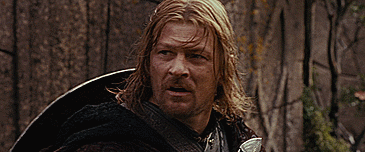
100 word drabble written for @fellowshipofthefics 'Luck of the Draw' March 2024 writing challenge. For this one I got 12 ("I don't need a gentleman right now.") and 14 ("Strength").
I have read some incredible Boromir AUs recently with strong female characters; specifically The Unravelling of Hard Words by @eternal-vambraces and Fuck the Forbidden by @entishramblings, they honestly made me look at him differently so guess I'm a Boromir simp now thanks guys. I haven't ever written anything for Boromir so decided to use this prompt for him!
Warnings: Description of battle, Boromir x Female!Reader pairing.
......................
"I don't need a gentleman right now!"
Two Uruks are annihilated by your blade in quick succession as you speak, the words woven with bitterness and ferocity. It's more than a demand to let you handle this yourself; it's resentment against societal norms dictating that a woman should be defended by a man.
Boromir knows this; he sees your scarred leather armour, toned physique and fearlessly unapologetic personality. He doesn't see a defenceless woman. He sees a warrior.
Broad shoulders press against your own, covering your back, sword and shield raised to fight.
"No," he concurs. "You need a friend."
#fotfics#fotfics march event#luck of the draw#writing event#fanfiction#lotr fanfic#Boromir#Boromir x y/n#Boromir x you#Boromir x Reader
90 notes
·
View notes
Note
do you have any sources on the worship of the goddess inanna/Ishtar during the Seleucid/Hellenistic period to the Parthian period? i dont recall stumbling upon anything talking about her.
even though from what I've been reading mesopotamian deities were still popular (like bel-marduk in Palmyra and nabu in Edessa or shamash in hatra and mardin or sin in harran etc etc.. ) i dont recall reading anything about her or anything mention her worship (other than theories of the alabaster reclining figurines being depictions of her)
A good start when it comes to late developments in Mesopotamian religion is Religious Continuity and Change in Parthian Mesopotamia. A Note on the survival of Babylonian Traditions by Lucinda Dirven.
Hellenistic Uruk, and by extension the cult of Ishtar, is incredibly well documented and the most extensive monograph on this topic, Julia Krul’s The Revival of the Anu Cult and the Nocturnal Fire Ceremony at Late Babylonian Uruk, is pretty much open access (and I link it regularly here, and it's one of my to-go wiki editing points of reference as well); it has an extensive bibliography and the author discusses the history of research of the development of specific cults in Uruk in detail. The gist of it is fairly straightforward: her status declined because with the fall of Babylon to the Persians the priestly elites of Uruk decided it’s time for a reform and for the first time in history Anu’s primacy moved past the nominal level, into the cultic sphere, at the expense of Ishtar and Nanaya. Even the Eanna declined, though a new temple, the Irigal, was built essentially as a replacement; we know relatively a lot about its day to day operations. An akitu festival of Ishtar is also well documented, and Krul goes into its details. All around, I don’t think the linked book will disappoint you.
An important earlier work about the changes in Uruk in Paul-Alain Beaulieu’s Antiquarian Theology in Seleucid Uruk. There’s also Of Priests and Kings: The Babylonian New Year Festival in the Last Age of Cuneiform Culture by Céline Debourse which covers Uruk and Babylon, but there is less material relevant to this ask there.
Evidence from Upper Mesopotamia and beyond is more fragmented so I’ll discuss it in more detail under the cut. My criticism of this take on the reclining figures is there as well.
The matter is briefly discussed in Personal Names in the Aramaic Inscriptions of Hatra by Enrico Marcato (p. 168; search for “Iššar” within the file for theophoric name attestations). References to a deity named ʻIššarbēl might indicate Ishtar of Arbela fared relatively well (for her earlier history see here and here) in the first centuries CE. The evidence is not unambiguous, though. This issue is discussed in detail in Lutz Greisiger’s Šarbēl: Göttin, Priester, Märtyrer – einige Probleme der spätantiken Religionsgeschichte Nordmesopotamiens.
Theophoric names and the dubious case of ʻIššarbēl aside, there are basically no meaningful attestations of Ishtar from Hatra, but curiously “Ishtar of Hatra” does appear in a Mandaic scroll known as the “Great Mandaic Demon Roll”. According to Marcato this evidence should not be taken out of context, and additionally it cannot be ruled that we’re dealing with a case of ishtar as a generic noun for a goddess (An Aramaic Incantation Bowl and the Fall of Hatra, pages 139-140; accessible via De Gruyter). If this is correct, most likely Marten (the enigmatic main female deity of the local pantheon), Nanaya or Allat (brought to Upper Mesopotamia by Arabs settling there in the first centuries CE) are actually meant as opposed to Ishtar.
Joan Goodnick Westenholz suggested that Mandaic sources might also contain references to Ishtar of Babylon: the theonym Bablīta (“the Babylonian”) attested in them according to her might reflect the emergence of a new deity derived from Bēlet-Bābili (ie. Ishtar of Babylon) in late antiquity (Goddesses in Context, p. 133)
In addition to Marcato’s article listed above, another good starting point for looking into Mesopotamian religious “fossils” in Mandaic sources is Spätbabylonische Gottheiten in spätantiken mandäischen Texten by Christa Müller-Kessler and Karlheinz Kessler; Ishtar is covered on pages 72-73 and 83-84 though i’d recommend reading the full article for context. The topic is further explored here.
In his old-ish monograph The Pantheon of Palmyra, Javier Teixidor proposed that the sparsely attested local Palmyrene goddess Herta (I’ve also seen her name romanized as Ḥirta; it’s agreed that it’s derived from Akkadian ḫīrtu, “wife”) was a form of Ishtar, based on the fact she appears in multiple inscriptions alongside Nanaya (p. 111). She is best known from a dedication formula where she forms a triad with Nanaya and Resheph (Greek version replaces them with Hera and Artemis, but curiously keeps Resheph as himself). However, ultimately little can be said about her cult beyond the fact it existed, since a priest in her service is mentioned at least once.
I need to stress here that I didn’t find any other authors arguing in favor of the existence of a supposed Palmyrene Ishtar. Joan Goodnick Westenholz mentioned Herta in her seminal Nanaya: Lady of Mystery, but she only concluded that the name was an Akkadian loanword and that she, Resheph and Nanaya indeed formed a triad (p. 79; published in Sumerian Gods and their Representations, which as far as I know can only be accessed through certain totally legit means). Maciej M. Münnich in his monograph The God Resheph in the Ancient Near East doesn’t seem to be convinced by Teixidor’s arguments, and notes that it’s most sensible to assume Herta seems to be Nanaya’s mother in local tradition. He similarly criticizes Teixidor for asserting Resheph has to be identical with Nergal in Palmyrene context (pages 259-260); I’m inclined to agree with his reasoning, interchangeability of deities cannot be presumed without strong evidence and that is lacking here.
I’m not aware of any attestations from Dura Europos. Nanaya had that market cornered on her own.
Last but not least: I'm pretty sure the number of authors identifying the statuettes you’ve mentioned this way is in the low single digits. The similar standing one from the Louvre is conventionally identified as Nanaya (see ex. Westenholz's Trading the Symbols of the Goddess Nanaya), who has a much stronger claim to crescent as an attribute (compare later Kushan and Sogdian depictions, plus note the official Seleucid interpretatio as Artemis for dynastic politics purposes), so I see little reason to doubt reclining figures so similar they even tend to have the same sort of gem navel decoration are also her, personally.

A great example of the Nanaya-ish statuette from the Louvre (wikimedia commons).
To sum everything up: while evidence is available from both the south and the north, the last centuries BCE and first centuries CE were generally a time of decline for Ishtar(s); for the first time Nanaya was a clear winner instead, but that's another story...
21 notes
·
View notes
Note
Hi! How are you? I saw your request for lotr characters are open, and was wondering if you could write something Legolas x reader. Where the reader is an elf (or maybe a dúnedain). And she and the prince elf had known each other since forever, but over time took separate paths because of their duties. And now after many years they are finally reunited for one last adventure. (It could be to help Frodo destroy to ring, or something entirely diferent).
Thank youuu!!
Pairing: Legolas x Reader
Rating || Genres || Warnings: T+ Romance if you squint.
Translation: Elen síla lúmenn' omentielvo, Legolas. - A star shines on the hour of our meeting, Legolas.
A/N: Cannot believe I missed this in my ask box. I hope you like this Anon! And I'm so sorry for being so late about it. Also I'm making the reader an elf.

The journey had been long and brutal, yet they had to have speed on their side. There was no time to be lost. The Uruk-Hai would be marching upon Helm's Deep soon. Thank the Valar, the weather had been in your favor. As Helm's Deep came into view, you couldn't help but feel a flutter of excitement settle within you.
It had been so long since you had seen Legolas. Too long in fact. Since the beginning of the Quest for the Ring, you had only just missed him and his companions while you were having your own adventures. You were a mere Ranger of Lothlórien, yet somehow, the Prince of Mirkwood himself had deemed you worthy enough of his friendship. At first you had considered it an honor, but as time had passed, the two of you began to build a relationship built on a trust that ran deep.
You had been most disappointed when you had returned from a scouting trip, only to be told that the Prince had left with his comrades. Despite the urge to go after them, you had stayed. You had a duty to the Woods you called him and the Lord and Lady that ruled over them.
But when Elrond had made that call, calling elves to arm to help man fight against the darkness that had swept across their land, you had been one of the first to volunteer. Had been the first to pack your necessities and filled your quivers with the finest arrows, before shouldering the bow he had gifted you long ago.
It had been years and years since you had been in his presence, and you had realized, quite early on, that you felt his absence greatly. It was surprising to you at first, and yet, as time went by, it had become clear.
You were in love with Legolas. Perhaps had been the moment you had first met him.
But now would not be the time to discuss such matters. They were at war. A battle was to be had, and if the outcome was in their favor, you promised yourself you would act on your feelings and see what he would have to say.
As you and the rest of the elves marched into Helm's Deep, you were made aware of every man looking in your direction, or rather in the general direction of the army. You had barely lifted your head when your eyes caught sight of an achingly familiar head of golden silvery hair. You lowered your gaze once more, hiding your smile.
Haldir, your Captain, greeted King Théoden, and Aragorn thanked him for arriving so timely. You hadn't seen Aragorn in quite some time too, perhaps this would be a reunion for the ages? Aragorn embraced Haldir, as did Legolas, both visibly glad at their coming. You were standing right behind the Captain as the elves shifted in their position to look straight ahead.
It was then that Legolas looked from over Hadlir's shoulder. His eyes widened. Your name fell from his lips in a whisper. Despite the fact that you would be breaking a few rules, you glanced at your Captain who smiled and gave a small nod. Stepping forward, you reached up to pull back your hood. A few surprised gasps followed your act, the men having not expected a female to be amongst the elven army. What they didn't realize was that there were just as many females as there were male elves.
"Elen síla lúmenn' omentielvo, Legolas." You greeted him in Elvish, eyes wide and hopeful as you smiled at him. Another call of your name, this time louder before he embraced you. A small laugh fell from your lips as you wrapped your arms around him just as tightly, returning the embrace. He picked you up and swung you around once, before setting you back on solid ground.
Neither of you cared that there were so many eyes on you, yet everyone seemed to want to share in your joy. To catch a glimpse of a joyful moment such as two friends reuniting after so long. They were to face the ugliness of battle soon. This would be there last bit of beauty before that. Théoden called for the Captain of his Guard to show the elves where they would be positioned. Aragorn began to speak to Haldir of strategies, prompting you to glance in the direction of your Captain.
"You were never one to shy away from a fight were you?" Legolas asked, with his arms bracing your own, as if to reassure himself that you were still here. That you truly were in front of him. You smiled at him. "And let you have all the fun?" You teased, though you could sense the underlying worry in his eyes. He surged forward to press his lips to your brow, closing his eyes as if in a silent prayer.
"Stay safe my friend. We have much to speak of." He whispered against your skin, prompting you to nod and close your eyes, inhaling deeply as you memorized his scent once more. "That we do Legolas. I shall see you once we have won." You said with conviction. There was not a doubt in your heart that you would loose. Not when you had Legolas at your side.
With a parting glance, and a joining of the hands that lingered until you had to step away from him, you disappeared into the crowd to do get to your station, just as Legolas turned to take care of his own duties.
-------------------------
A/N: Hmmmmm should i continue this?
233 notes
·
View notes
Note
I think the scene where Glug the Orc tried to cut Galadriel's famous golden hair before Adar stopped him was interesting. On the surface, I assume the Uruk Father did it to stay on Gal's good side, and hopefully, gain her as an ally against Sauron. On a deeper note, I think him preventing anyone from cutting Gal's hair shows how even in his darkest form, Adar still retains some of his original elvish nature. All the elves frankly worshipped Gal's hair as a holy relic because it carried the Light of the Two Trees in its tresses. Feanor was so obsessed with its beauty (And probably Gal, herself) he demanded strands to create the Simarils. He even forcibly tried to cut some off before she stopped him (Definitely attempted SA undertones).
Despite his Uruk status, Adar probably still has an elvish awe over Gal's legendary hair and won't let it be desecrated. I also think how in history cutting a woman's hair was done as a punishment, especially in reaction to female agency and sexuality outside of patriarchal norms. It's possibly some dormant elvish chivalry in Adar wouldn't allow a female fron his former culture to undergo such humiliation. I just know if Sauron finds out Glug tried to cut the golden-silver hair he adores and compares to every other blonde she-elf (Poor Mirdania), he will personally cut on Glug's head and deliver it to his wife and child. Dark Simp would see it as a sacrilegious assault against his Lady of Light.
That's another thing I find fascinating about Adar too and even more excited for his and Galadriel's scenes next week. He has kept some of his elvish nature and customs with him after all these years. And interesting the show brought up again her hair twice in this episode. Plus, it made me think of how she will give Gimi some of her hair freely so many years later. And poor Glug if Sauron finds out about that. LOL
14 notes
·
View notes
Text










Orc (2/2)
Avalon Hill
Ending the month with the HeroQuest best:
Orcids
#miniature painting#orc#heroquest#painting miniatures#minis#minifigs#miniatures#miniature#fantasy#board game#monster#fantasy monster#sword#axe#mace#tabletop gaming#tabletop#dnd#d&d#dungeons and dragons#orcs#female orc#orcs and goblins#green skin#uruk hai
13 notes
·
View notes
Text
Anthropologists and philosophers have asked whether agriculture could have been the tipping point in the power balance between men and women. Agriculture needs a lot of physical strength. The dawn of farming was also when humans started to keep property such as cattle. As this theory goes, social elites emerged as some people built up more property than others, driving men to want to make sure their wealth would pass onto their legitimate children. So, they began to restrict women’s sexual freedom.
The problem with this is that women have always done agricultural work. In ancient Greek and Roman literature, for example, there are depictions of women reaping corn and stories of young women working as shepherds. United Nations data shows that, even today, women comprise almost half the world’s agricultural workforce and are nearly half of the world’s small-scale livestock managers in low-income countries. Working-class women and enslaved women across the world have always done heavy manual labour.
More importantly for the story of patriarchy, there was plant and animal domestication for a long time before the historical record shows obvious evidence of oppression based on gender. “The old idea that as soon as you get farming, you get property, and therefore you get control of women as property,” explains Hodder, “is wrong, clearly wrong.” The timelines don’t match up.
The first clear signs of women being treated categorically differently from men appear much later, in the first states in ancient Mesopotamia, the historical region around the Tigris and Euphrates rivers in what is now Iraq, Syria and Turkey. Around 5,000 years ago, administrative tablets from the Sumerian city of Uruk in southern Mesopotamia show those in charge taking great pains to draw up detailed lists of population and resources.
“Person power is the key to power in general,” explains political scientist and anthropologist James Scott at Yale University, whose research has focused on early agrarian states. The elites in these early societies needed people to be available to produce a surplus of resources for them, and to be available to defend the state—even to give up their lives, if needed, in times of war. Maintaining population levels put an inevitable pressure on families. Over time, young women were expected to focus on having more and more babies, especially sons who would grow up to fight.
The most important thing for the state was that everybody played their part according to how they had been categorised: male or female. Individual talents, needs, or desires didn’t matter. A young man who didn’t want to go to war might be mocked as a failure; a young woman who didn’t want to have children or wasn’t motherly could be condemned as unnatural.
As documented by the American historian Gerda Lerner, written records from that time show women gradually disappearing from the public world of work and leadership, and being pushed into the domestic shadows to focus on motherhood and domestic labour. This combined with the practice of patrilocal marriage, in which daughters are expected to leave their childhood homes to live with their husbands’ families, marginalised women and made them vulnerable to exploitation and abuse in their own homes. Over time, marriage turned into a rigid legal institution that treated women as property of their husbands, as were children and slaves.
Rather than beginning in the family, then, history points instead to patriarchy beginning with those in power in the first states. Demands from the top filtered down into the family, forcing ruptures in the most basic human relationships, even those between parents and their children. It sowed distrust between those whom people might otherwise turn to for love and support. No longer were people living for themselves and those closest to them. Now, they were living in the interests of the patriarchal state.
This is interesting.
#repost of someone else’s content#article#patriarchy#adultism#statism#feminism#anarchist#anarcha-feminist#history#historiography#anthropology
37 notes
·
View notes
Note
Good evening and happy early Christmas i found your account by looking through the obey me tags and saw you do obey me request if you don't mind may I get the obey me brothers with a Gilgamesh female reader? Sorry on my whole part if it's too long and if it is you can ignore it<3
Gilgamesh is The strongest heroic spirit. Gilgamesh is the great half-god, half-human king born from the union between the King of Uruk, Lugalbanda, and goddess Rimat-Ninsun. He ruled the Sumerian city-state of Uruk, the capital city of ancient Mesopotamia in the B.C. era. He was an ultimate, transcendent being so divine as to be two thirds god and one third human, and no others in the world could match him. He was a despot possessing high divinity who believed he was invincible. He is not merely a legend, and is said to have actually existed and ruled during the Sumer Dynasty five thousand years ago. He was the King of Heroes (英雄王, Eiyū Ō?) who possessed all things in the world, whose tale is recorded in mankind's oldest epic poem, the Epic of Gilgamesh which portrays Gilgamesh as a hero, destined to be king and achieve great feats, who is driven to meet his destiny, facing challenges together with his best friend Enkidu.
he would reprimand the King and rectify his arrogance. They entered a battle that spanned several days, and Gilgamesh was forced to use all his strength to match his transforming opponent.
He became the greatest and richest king on Earth, who eventually acquired all the treasures of the world. Uruk became unprecedentedly prosperous, and Gilgamesh was considered so powerful that even the gods could not ignore his existence. One goddess, Ishtar the goddess of fertility, even fell in love with Gilgamesh and proposed marriage to the perfect king. He rejected her immediately because he knew her to be a witch who was unfaithful, cruel, and the corruptor of all men. She became furious, feeling that he had insulted her, and went to her father, the god Anu, to get revenge. She begged him to unleash the Bull of Heaven.
The unopposable beast of the gods caused seven years of starvation and destruction on the earth. Working together, they defeated it after binding it with the Chains of Heaven, causing the dark clouds covering the world to fade and saving the land from the flood. Ishtar's reputation was once again crushed, and her fury did not abate. She requested they be put to death for the sin of slaying a beast of the gods with the body of a human. Her request was granted, and Enkidu, created by the gods, was unable to defy the decree.
He slowly weakened and was returned to clay, as Gilgamesh desperately held on to the crumbling clod in his arms. He was angered by this, believing that he was the one who deserved retribution should it be required. Enkidu attempted to assuage him by telling Gilgamesh that he was only one of the many treasures in Gilgamesh's collection, that he would find countless more greater than him in time.
Enkidu returning to dust, meeting death, greatly changed his views. Death had never inspired grief or fear in him until that moment, and it had never once even been in his mind though he knew that it awaited all. Seeing the one who held equal power to him perish before his eyes let him register the true reality of death for the first time. Falling into depression and with his vigor gone, he sought out the Herb of Immortality, a spirit herb of perpetual youth and eternal life.
His title, King of Heroes, is not meant to call him a king who is a hero, but instead implies that he is the king over all heroes. He is mankind's oldest hero, the origin of all myths and model on which heroes are based, so his story is copied within the mythologies of all the countries of the world. The heroes of various myths are derived from his legend, so his Gate of Babylon possesses all of their Noble Phantasms. Though there are several heroes holding the title of "King", the King of Knights and King of Conquerors, he is the only one in all of heaven and earth crowned with the title of "King of All Heroes.He is often referred to as the "golden Archer" and the "golden-sparkling Servant," and Rider generally calls him "Goldie." He is similarly called Gold-glitter (金ピカ, Kin-Pika?) due to his hair, armor, and golden soul, but Rin's reasoning behind the name has less to do with the color of his hair and more simply due to the fact that she thinks he looks like he is living a rich and luxurious life.[8] He looks like a regular foreigner to both Rin and Archer, and he does not openly give off the impression of a Servant or Master due to his body being made of flesh after the Fourth Holy Grail War.
Personality ↓
He is extremely arrogant and selfish, believing himself to be the sole potentate and only king of the world even many millennia after his death. He cannot acknowledge the authority of anyone, including that of other kings and especially that of the gods. He considers all those around him as inferior due to this fact, viewing all other kings and heroes as a collection of mongrels, and loathes any individual who would try to be on the same level as him. The only exception is Enkidu, who he considered to be his equal and only friend.
Gilgamesh greatly differs from most of the sovereigns and leaders in the history of humanity. He placed himself before his nation and the people, and he had neither the curiosity nor desire to conquer, possibly because he had too much in the beginning. He takes the time to enjoy himself, mastering every treasure and every pleasure. With conviction to treat good and evil equally, he has no need for other ideologies and ways of life when the absolute basis is "himself."[5] His actions and way of life left him alone, so Enkidu compared rectifying his attitude to rectifying his solitude
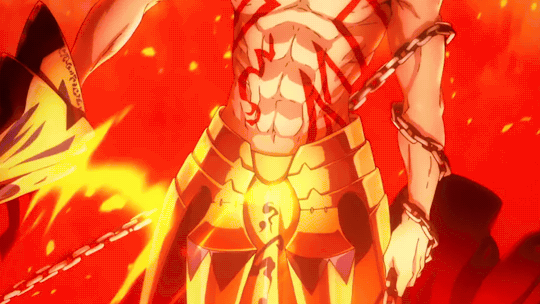
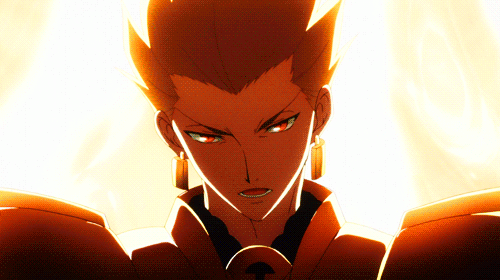
Sorry for taking so long on this 😭😭. It’s a bit short, but romantic nonetheless.
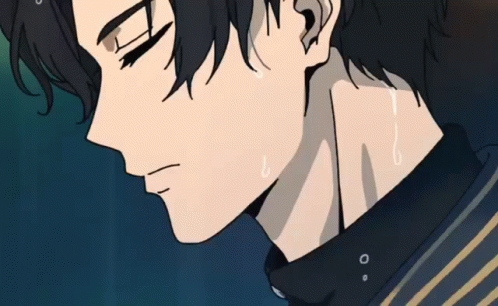
Lucifer at first really disliked you until he saw that you acted exactly like him. You were prideful, you were arrogant, and you put yourself first. Being a queen and an overall highly worshiped person might do that to you, though. However, you saw him as your equal. The king consort to your queen, if you will.
He does find your habit of collecting treasures to be very annoying, but you spent your own money and used your own influence, so it wasn’t exactly affecting him. He actually does like purchasing things for you when you do something good, but you hate it because you think that he’s looking down at you.

Mammon also thought you were annoying but you pointed out that he had no right to have that much audacity. After all, he was worse than you were. This caused you both to get into a physical altercation, and you surprisingly (or unsurprisingly) came out victorious.
The two of you actually loved buying things for each other as an apology after fights. You both loved hoarding treasures, but to the Avatar of Greed, you were the best treasure yet. You loved how he played hard to get, as it meant that he was something/someone you didn’t have yet. Little did you know, you both had each other.
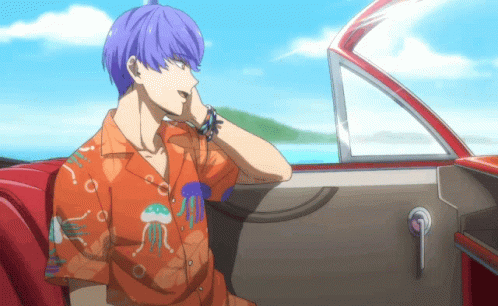
Leviathan almost cried because you reminded him of a character from an anime he had watched. Your personality matched them to a T, but you absolutely despised how he compared you to a lowly character from a silly show that was nowhere near as good and as awesome as you were.
As the two of you really got to know each other, he started receiving small figurines from you as gifts. The acts of affection made him so flustered that he couldn’t face you for a few days after each gift was given. When he finally gathered the courage, you would smirk because you were slowly conquering his heart.
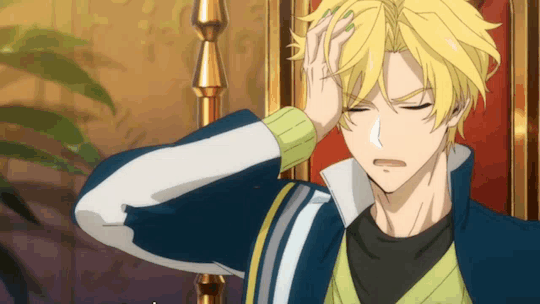
Satan and you clashed heads at first. You both wanted to be number one, and your tempers were definitely not something to laugh at. Numerous times, Lucifer had to step in and stop the fight before it destroyed the entirety of the House of Lamentation. The fights often ended up in you both panting from yelling and throwing things around.
Gift-giving wasn’t really his love language, but he had to admit that he was impressed at your ability to show that you care about someone else aside from yourself when he saw that you gave him the next book in a series that he was currently reading. In return, he gave you a golden necklace, since you managed to get the book’s cover in true gold.
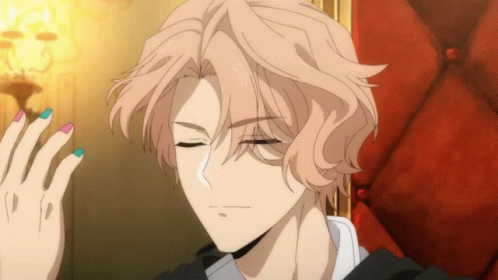
Asmodeus thought you were so hot. You know how some people like others who have anger issues because those anger issues are not directed towards them? That’s what the situation was. He got to see your more vulnerable and sensitive side, and it was reserved for him and only him. The thought just made his heart flutter.
He also loved getting you gifts just as you did with him, as it meant that you both could constantly be reminded of each other no matter where you were. You loved the feeling of being worshiped and in the middle of his world. It gave you such a great feeling in your chest, you couldn’t contain the smile that appeared on your face.
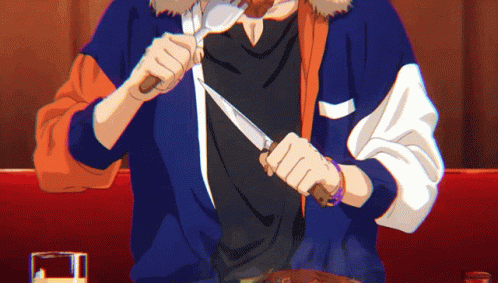
Beelzebub did not appreciate your prideful attitude, but he recognizes that he can be selfish as well. Especially when it came to food. Another thing is as you both get to know more about each other, he learns that you were a queen once. Instead of conquering lands, you conquered treasure because you believed that they were tools to create all of humanity and civilization, and thus are more important.
He also loves giving you gifts, and you like to give him the best food made from Mesopotamian recipes that you remembered with your oh-so-great memory. He might actually have a new favorite food, if you can cook. To be fair, he was surprised to see you cooking because you were a ruler and thus you had cooks of your own back in ancient Mesopotamia.

Belphegor and you also clashed heads numerous times. When he tried to kill you, he did not know what he was getting himself into. The thing is, you put yourself first. At that moment, you had to choose between either life or death. It surprised no one when you almost killed the Avatar of Sloth, had Lucifer not stepped in to stop you.
Your relationship didn’t repair any until much later, where you extended the olive branch by gifting him a new pillow from the same brand that his old one was from. Seeing it in his room after school made him smile a bit, but there was no way he would let you see that he was going soft for you.
#obey me#obey me x reader#obey me shall we date x reader#obey me shall we date#obey me!#obey me lucifer x reader#obey me lucifer#lucifer x reader#lucifer#obey me mammon x reader#obey me mammon#mammon x reader#mammon#obey me levi#obey me levi x reader#obey me leviathan x reader#obey me leviathan#leviathan#leviathan x reader#obey me satan x reader#obey me satan#satan x reader#satan#asmo#asmo x reader#asmodeus#asmodeus x reader#obey me asmo#obey me asmo x reader#obey me asmodeus
83 notes
·
View notes
Text
"Nasty Little Snapping Things" - Musings on Orc Families
Certain people losing their minds because they saw an orc family depicted for the first time on the screen... Even though Tolkien stated that orcs reproduced in the manner of the Children of Illuvatar, that there were orc women, that Azog was the son of Bolg, and heavily implied that Gollum was eating orc children who wandered too far away from their parents.
Angmar and I already explored these concepts back in 2004... Our explorations of the darker side of Tolkien horrified some people, and Angmar was ruthlessly bullied by idiots by daring to suggest such so-called heretical concepts as the Nazgul having personalities, the existence of female orcs, and Sauron being more than just a floating eyeball upon the top of a tower. (See: Arda Was Always Marred)
This fandom has always had its share of close-minded people who project their own peculiar concepts of fantasy upon Middle-earth and revel in their ignorance while claiming to be knowledgeable.
Here is a selection Angmar and I wrote back in 2006 which deals with the subject of orcs.
The Circles: Book 2: Journey of Sorrow
Chapter 10 - "An Unwelcome Edict"
Amid cat-calls from their mates, the she-orcs sauntered forward from the line of uruk guards. The male orcs were ugly enough, but their mates defied the classification of "female." Every visible part of their bodies had been mutilated with frightening piercings or marked with strange and hideous tribal tattoos, and all were clad in a bizarre conglomeration of military uniform and civilian dress, obviously commandeered from a wide variety of peoples. One obese she-orc wore a morbidly hilarious parody of armor which barely covered her massive mammary glands. Her outfit was complete with an embarrassingly tiny leather loincloth which revealed the muscular contours of her beefy, hair-covered thighs.
A strange and disturbing thought struck Elfhild's reeling senses, driving out everything else that was in her mind: had these loathsome creatures ever known love? Had the orc who slew her mother possessed such a – she could hardly bring herself to think it – mate? She had learned that he was a kinsman of the others in the raiding party, but she had never really thought of such matters before. What if he had… children? What did an orc baby look like? Probably a nasty little snapping thing… but still a baby. Elfhild grieved for her own mother; did an orc woman and child grieve for the raider whom she had slain? Was she guilty of inflicting the same sorrow upon others as the orc had brought her? Was she a cold-hearted killer? Or was she only trying to defend her home?
She must stop thinking about such maudlin things. Of course, the orcs had no feeling. Everyone knew it. They were enemies, and all of them deserved to… to… be exterminated? No! She would never let herself think that. They were thinking creatures – their horrible attire proved that they had individual tastes and preferences – and they had the right to live just as anyone else.
7 notes
·
View notes
Note
Could we know about catalhoyuk and their relationship with other nations 👀
Ah, that can be hard to say. For Çatalhöyük I am going off of archaeological evidence (namely excavations and studies of murals and artifacts from the site itself). I would argue it's even dubious for me to consider Çatalhöyük as a personification given we have no way to know if they had such a solidified identity. It's not considered urban nor was it a larger city-state that encapsulated further-flung agricultural villages/borderlands spaces into a politically influential region (though proto-city and proto-urban community are two terms generally accepted to use in reference to it in most literature I've consumed). We aren't sure if they would've had an established political body, though I would imagine with 3,000-8,000 clustered together, the people of Çatalhöyük would've had some sort of order in place.
This is a long-winded and rather roundabout way to say that the settlement of Çatalhöyük had no neighbors of similar size or capacity (as far as we know). Any 'neighbors' they may have had were most likely significantly smaller hunter-gather bands - which are typically made up of one to a few family groups, numbering in the tens, not thousands - or were smaller settlements whose legacies didn't preserve in the climate of south-central Turkey. Çatalhöyük as a personification may have been uniquely alone, whether through the fact that she is/they are the "first city" and had no one to compare to, or that any contemporaries they would've had might have come and gone long before they ceased to live. It's good to note that Çatalhöyük would've lived for approximately 1,000 years. (Estimates of continuous settlement of the site range from 1,100-1,500 years.)
Overall though, Çatalhöyük (personification) would've been living like her/their people. In oak-timber proto-row houses without doors, climbing via ladders to rooftops and to other homes. We theorize most things would've been done up on these rooftops; trade, conversation, fabrication of clothes and baskets and necessities, etc. as an early form of market since the site has no "public buildings" and no streets or walkways. We know that the people of this early society participated in early agriculture, farming wheat, barley, peas, lentils, and other legumes. They would've herded goats or sheep, as domestication and agriculture have gone hand-in-hand, which they would've used for food and for their hides as clothing. They also likely made clothing from woven bast fibers - textiles made from the inner bark of trees like willow, oak, and linden!
What we know about religion at Çatalhöyük is also vague. There was no known writing system and our information has mostly come from potentially ritual figurines and murals found throughout parts of both mounds of the site. But I personally would imagine that seeing this person who does not age - at least not like she should compared to everyone else - and seeing that she can perform feats that normal men cannot might make her seem like much of a divine figure. I know it's rather common fanon that the Ancients in Hetalia (or modern Nations who have also been around long enough to be considered so) would've been revered like gods. That, I think, would be interesting to play with. (A personal side note, I like to think that personifications of the later cities Eridu, Uruk, and Ur were female and therefore seen as emissaries of/faces of the goddess Ishtar (or Inanna).)
As for Çatalhöyük's relationship with other Nations, who at this time would've simply been cities or city-states, not nations as we see them today, I think their relationship is murky at best. No modern National personification we have today would have met Çatalhöyük. They know about them from archaeology, from literature, or from stories passed poorly down more in the cadence of a legend than factual anecdote. They are The First if not merely one of the firsts of their kind, which makes them special, but with that comes packaged the unfortunate tragedy that so much of Çatalhöyük's everything has been lost to time, to modern factors, and to the Earth itself.
However, this is something I'd love to do more research on so I could theorize better.
#callsign gremlin checking in#mooom! gremlin’s archaeologyposting again!#çatalhöyük // the first to rise; the first to fall#hetalia#hetalia headcanons#aph ancients#hws ancients#hetalia oc#aph catalhoyuk#hws catalhoyuk
15 notes
·
View notes
Text
Fated Rantings: Genderbent Silliness
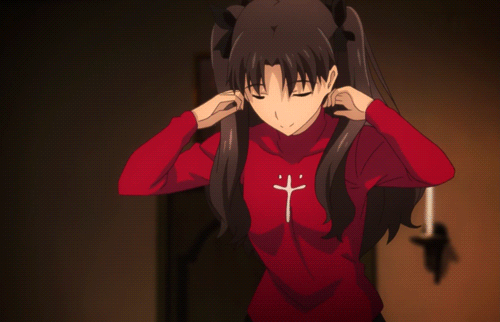
This won't be the same as my well thought Fate posts but I felt the need to make it. One of the things I've learned about Fate is that it's genderbends range from marketing, trolling, and "fuck it" reasons.
So let's go over some of the ones I've learned since I started this journey.
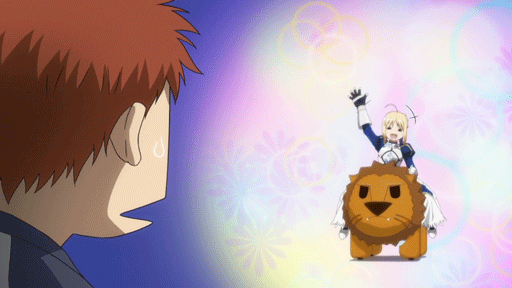
Artoria & Shirou
The iconic duo, the mainstays, and the first ones to be genderbend in the Type-Moon meta franchise.
What drew me to Fate and this duo initially was just how accurate Artoria's backstory is to the actual Arthurian legend in real life. In fact, you'll see that a lot of Fate characters stay remarkably true to their legends even if the gender is altered.
And I'm sure you expect me to give this big breakdown on how this affected Shirou and Artoria but there isn't one. No no.
Shirou and Artoria had their genders altered from the initial draft of Fate Stay Night for marketing reasons.
No joke, they swapped their genders to sell the initial release of Fate Stay Night better...which was likely a good call since the original release of FSN had hentai scenes.
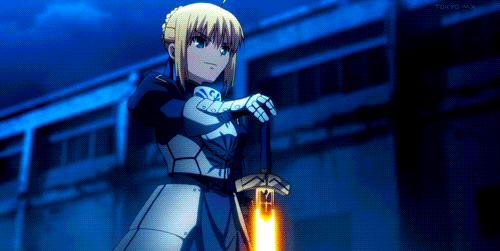
The scenes were relevant to the Sakura route and the rest was just service. So to appeal to the japan market way back when they made the lead (Shirou) male and his servant (Arthur) female.
The phenomenon that is Saber exploded afterward. Saber's design is so iconic and beloved by the series artists that they actively reuse it whether the reasons be jokes or serious.
This is the trend fans refer to as "saber face".

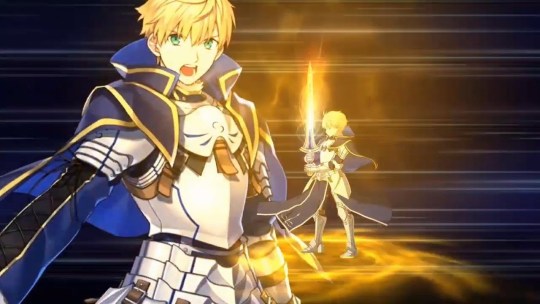
Proto Merlin & King Arthur
Since we're on the subject of King Arthur allow me to tell you about Fate/Prototype.
You see, even though the final draft became Fate/Stay Night, the initial draft was reused later to become Fate Prototype.
What makes Fate/Prototype unique to me is that many characters who had their genders bent in FSN do not in Prototype. Arthur is as you'd expect him to be, a young man of handsome build. Same for several characters.
Well, except for Merlin. Within the Prototype universe Merlin is female. The dynamic and backstory of both king and mage are the same as they are IRl or even in FSN.
I only point this out because I find Fate/Prototype fascinating (I hope it gets a show one day) but also because the voice actors for Merlin and Arthur swap roles.
The voice for male Merlin in most Fate works voices Arthur in Prototype. While the voice for Saber in FSN voices female Merlin in Prototype.
Even here they have a bit of fun with the concept.
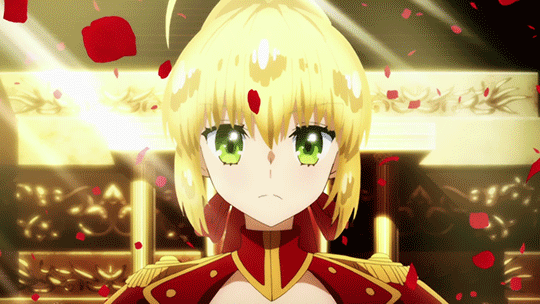
Nero fucking Claudius
Of all the "saberfaces" and overall genderbends in Fate I consider this one the funniest I've discovered.
The true name of Red Saber from Fate Extra is Nero Claudius Caesar Augustus Germanicus. Yes that one emperor, you know the one.
The sole reason Nero is female, let alone a near identical clone of Artoria, is a troll. When making Fate Extra they decided to design Nero like this solely to trick people into thinking the Saber they love was in the game.
There is no grander reason and I personally find it hilarious. I've yet to watch Extra since I'd rather play the remake when it launches but I know Nero has her own following.
I can't help but respect a troll like this.
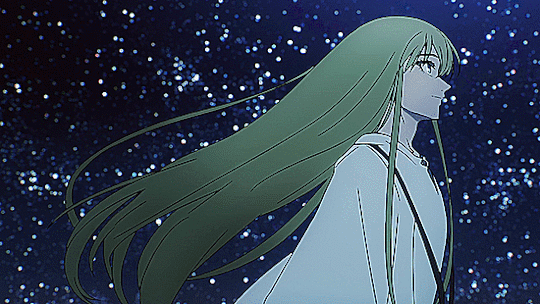
The Genderless
Next is Enkidu. I'll admit upfront that I do not know what the logic was behind Enkidu however given how he is is written I believe it's done to be within character.
In the IRL epic of gilgamesh Enkidu is a big burly hairy wild man that is of equal strength to king Gilgamesh. He was created by the gods to reign the tyrannical king in.
Within Fate, that backstory is the same, but Enkidu is nowhere near burly nor hairy. I only refer to Enkidu as "he" for writing convenience and because Enkidu doesn't seem to care either way.
You see, Enkidu sees themselves as a tool regardless of how much Gilgamesh or the residents of Uruk say otherwise. Enkidu is also modeled from clay and is not actually human or even god at all.
The appearance Enkidu uses is modeled after the harlot sent to teach him. In the IRL myth she slept with Enkidu but given how Fate Enkidu is made it's more ambiguous.
Their feminine appearance is a way to honor this person though.
This bend is neither marketing nor funny, it's more akin to a reflection of Enkidu's character and how they view themselves and thus worth noting.
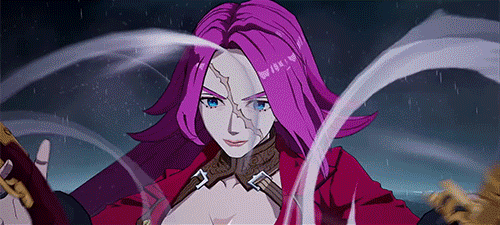
"Francis Drake"
This is one I learned quite recently. Apparently the servant that presents itself as Francis Drake is actually a play on an old rumor.
See, it was rumored back in the day that Francis Drake would let Queen Elizabeth masquerade as himself and use his ship. The scar on her face is also possibly a hint at the small pox scars that Queen Elizabeth had. Both Elizabeth and this servant also have red hair.
Of course, FGO does throw out there that she was written as male in the history books because her crew could not see her as a woman.
I wouldn't even be surprised if that is the answer Nasu would give.
But the parallels to queen Elizabeth and the rumors about Francis Drake letting her sail are just too funny not to bring up.
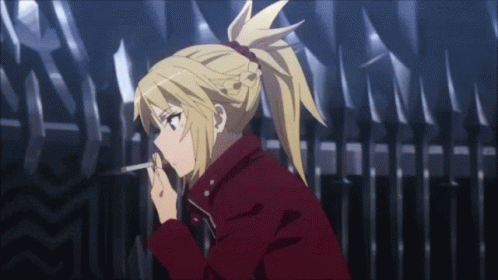
Saber of Red
I've talked a lot about Mordred before but I'm adding her here because I just find her to be a good complex character.
I also won't delve into the whole debate around her since that already took two full posts dedicated to Mordred to do.
The whole reason Mordred has the physique she does is due to Mordred and Merlin's magics at work. Mordred is, in the simplest way I can explain, a homunculus/clone of Artoria and is thus female like Artoria.
BUT I do know there was concepts for a male Mordred at one point:
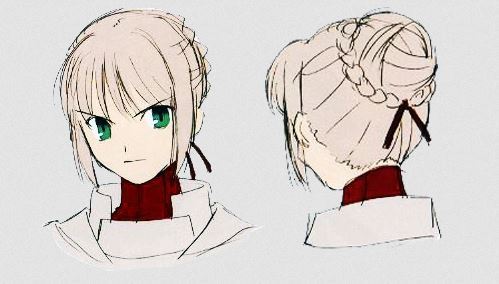
And a part of me kind of wishes they had stuck to this concept or reused it for one of the Fate timelines.
It would make the whole desire for the throne all the more compounded because, unlike their "father", this version of Mordred would be male and have even less reason to hide behind magics and lies like Artoria did.
It would also be interesting to see how this Mordred justifies themselves or reacts to the truth of their "father".
Though given the harsh upbringing, their idolization of Arthur, and their short lifespan, this Mordred may have been nearly identical to the one we have regardless.
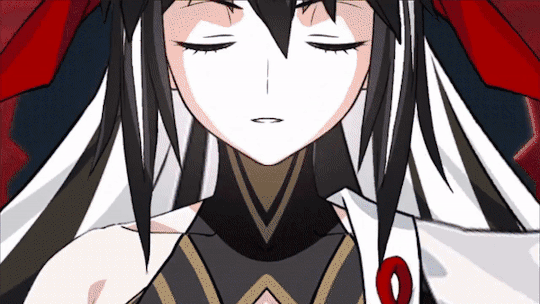
Nagao Kagetora
I know next to nothing about this character both in Fate or IRL but I am adding them as my final gender bend of notice because it's oddly historical.
From what I've come to learn Nagao Kagetora was suspected to be a woman. Whether that was truth or just rumors to discredit a political rival is unknown but the Fate servant itself takes that rumor and uses it.
It's one of the few servants I know of where the altered gender may very well be a truth IRL. It's made me curious about how many there are in Type-Moon that I just do not know about due to my lacking knowledge of Japanese figures.
It also goes to show that not every servant it changed for a joke, marketing or just the writer/artists whims. Sometimes there's actual historical backing which makes that particular servant all the more interesting to research.
Yes, Francis Drake is technically similar but FGO offers an explanation. The whole Queen Elizabeth thing is just a fun parallel that might be true. Plus, both Elizabeth and Drake exist in Fate as two people.
Where as this servant possibly was a woman. Maybe they weren't, no way to know now and that makes it unique.
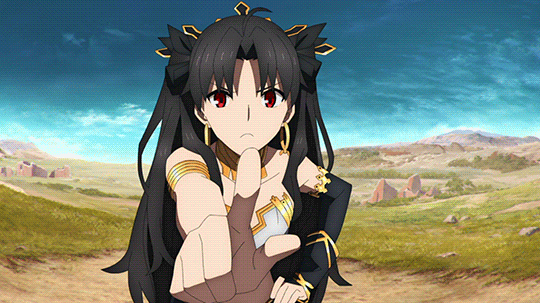
Finale
And that's all I got for now. There are plenty of other examples but these are the ones that have stuck out to me the most since I began watching/reading Fate.
Some servants were also just to convoluted for me to squeeze into this one post. Not for the gender swapping but their origins as demi-gods and the like. It kind of goes hand in hand.
Some servants are only a gender thanks to the body they're borrowing. Mash Kyrielight is an example of this because she's a demi-servant possessed by Galahad. Meaning she's a female version of Galahad in a loose sense.
Other servants may be from the "GUDA GUDA" side of Type-Moon which doesn't even bother to explain. If a figure is genderbend in a "GUDA GUDA" world story then that's just how that world's history unfolded.
Sakura Saber and female Nobunaga are two key examples of a "GUDA GUDA" genderbend.
========================
Hopefully you enjoyed this regardless. For my other experiences with Fate go here: https://derekscorner.tumblr.com/tagged/fated-rantings
12 notes
·
View notes
Text
Summary:
Porn without plot, in which two female Uruks, Kagduf and Mazgash (both OCs) and Primrose, a former Balrog (OC) now wearing a female Uruk form, play a sex game popular among Uruks. Kagduf and Mazgash are long-term lesbian partners; Primrose is their friend who sometimes joins them for sex. The game is called "Elf Captive". One Uruk is the captive Elf, and their Uruk partner(s) torture the Elf in some way (often by providing or withholding pleasure) to get critical information.
This an excerpt from Chapter 13 of my longfic "Adar and Primrose in True Love and Adventure". The scene is set in newly-formed Mordor.
Rings of Power Summer Celebration, Week 6: OCs
5 notes
·
View notes
Note
hello! i have two questions for you:
how did the hittites(?) adopt gods into their pantheon? did they change any major parts of the myths or was it just eating them whole? something else?
what was the phd-obtaining process like?
I have two answers for you! They are both long; brace yourself.
1. The short answer is: yes, they totally changed all sorts of stuff, except when they maybe didn't. The long answer is complicated and difficult, because we have almost zero examples of the original myths/rituals/etc: most of the people from whom the Hittites adopted gods didn't keep written records of their own. So we can't do a side-by-side comparison of, say, a myth from Kizzuwatna (a territory in southeastern Turkey that was conquered early on) and the same myth from the Hittite archives, because the Hittite documents are the only ones we have - the origins are lost. We also don't actually have much straight-up narrative myth; there's a lot more ritual description and incantation (sometimes involving bits of myths along the way). But! We can still work with what we've got.
So, for example, there are some rituals that exist at Hattusa in a shorter form in Hurrian (the language of Kizzuwatna), and then in a longer, modified form in Hittite. Our understanding of Hurrian is not awesome, and all of these texts are super broken and incomplete, but stuff has clearly been changed and added and moved around between the two versions. There's also a record of Puduhepa, a Hittite queen who was the daughter of a Kizzuwatnean priest, attempting some syncretism: that is, she states that the Hittite Sun-Goddess, the female head of the pantheon, is the same as the Hurrian head goddess Hebat. She just goes by different names in the different places, says Puduhepa. So here the two traditions are being fully merged.
This is a pretty extreme example, because Kizzuwatna was incorporated into the Empire quite early, and because there was a lot of intermarriage, so the Hurrian traditions/language ended up deeply interwoven with the central Anatolian traditions by the end of the Empire (at least in the upper class). There are other rituals attested at Hattusa - for example, ones with incantations in a language called Palaic - that don't seem to have been modified in the same way? We have Palaic incantations (which we mostly cannot read) bracketed by pretty basic ritual acts (offerings, libations, etc). These seem to have been adopted into the Hittite festival calendar without much modification. But we can't really know that, because we don't have the original rituals from Pala - and further, there could have been a modified Hittite version with translated incantations and we just haven't found it.
A final example is the one single text that we can compare to a native version, which is Gilgamesh! There is a Hittite version of Gilgamesh, and it is SO GREAT: the Hittites skip the whole beginning part at Uruk. They could not give LESS of a shit about Uruk. What do they care about southern Mesopotamian cult cities? NOTHING. But the bit where Gilgamesh and Enkidu come north into Syria to face Huwawa/Humbaba, up near Hittite stomping grounds, gets lots and lots of attention. Such beautiful country! Such impressive cedar trees! They really linger over it and it is fantastic.
2. The PhD-obtaining process was pretty gruelling! as PhDs always are, really. I did a combined MPhil/PhD, and all told it took eight years, which is pretty normal for the field and even kind of speedy for my university. (Though it is still longer than any human being should spend in graduate school.) First two years were coursework and the Master's thesis - I did an edition of a text for my Master's, which is like - you look at all the fragments of your text, including copies if any. (You are looking usually mostly at published drawings of clay tablets, with reference to photos where available; if you and/or your project are big and important you might go to visit some of the fragments in person if possible.) You make a composite transliteration, which is a transcription of the cuneiform into Latin script, where you match up the fragments as best you can and restore gaps based on copies if they exist, and then a translation. Then you write a commentary where you talk about any difficult grammatical stuff and say whatever you have to say about the content. If you're doing graduate work in cuneiform studies - and other kinds of philology too - you gotta learn how to do this and do a good job at it, and it is incredibly painstaking and difficult, woof.
So then! Two more years of coursework! It's a hell of a lot of coursework; most doctorates do not make you take this much. But you have to learn so many, many languages. I did Akkadian, Sumerian, Hittite, Hurrian, Luwian, and then the more minor Anatolian languages (Lydian, Lycian, etc.) which are only very poorly attested and so you just kind of do your best with what's there and move on with your life. I also had to know how to read French (which I came in with) and German (which I came in with a tiny bit of) and Italian (which I did not know) for research purposes, which was extremely necessary - most of the secondary sources for my dissertation were in German. Those three languages had to be done outside of regular coursework. (Also sometimes other languages! One of my favorite grad school stories is when I was taking a class that was just two of us in my advisor's office, doing abovementioned obscure Anatolian languages, and he turned around at the end of class with two hefty printouts in his hands and said, "Do you two read Spanish?" and we were like, "no," and he was like, "Well, you're going to have to! Read this for next time," and handed us each a forty-page article in Spanish. GOOD TIMES.)
Anyway. After coursework came comprehensive exams, which are almost as fun as they sound - ours were four eight-hour tests, to be taken over seven business days, covering what we had learned in class the previous four years. Then I had to prepare a dissertation topic - this was also when my funding was starting to run out, so I had to start working as a TA and writing instructor, and as a copyeditor for a journal published out of our department. So I proposed my dissertation at the end of my fifth year, and then worked and wrote for three years, which: every year of the last three years was more difficult than any that had come before it. But then I finished! And now I am Doctor Frostfire, the end.
So yeah, it was really - it was quite tough. I don't regret doing it, but it would be hard for me to in good conscience recommend that anyone else do it, because it's really not very good for you to do all that. I was certainly in a much, much worse state of physical and mental health at the end than at the beginning. But I am very proud of it; I wrote a really good dissertation, and one of the nice things about such a tiny obscure field is that you can really witness your own impact on it, even while still a graduate student. And! I am now in a position to dispense Hittite facts basically endlessly, because eight years teaches you A LOT. Hooray!
14 notes
·
View notes